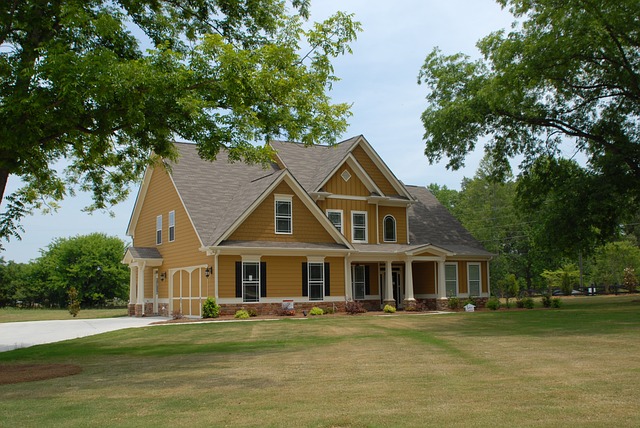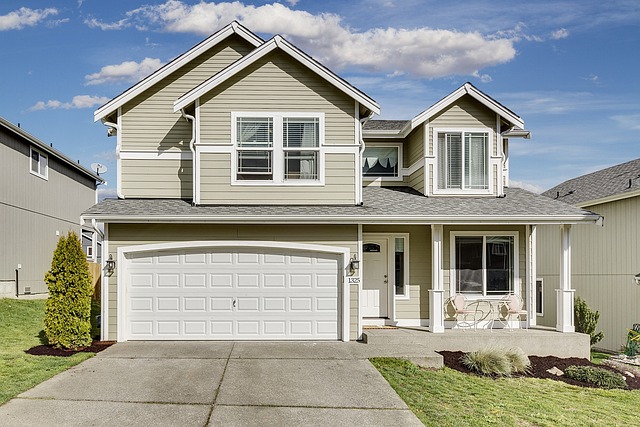The Executive Condominium (EC) segment of Singapore's property market is a popular choice for upgraders and first-time homeowners, offering a unique blend of public and private housing benefits. ECs are subject to upward pricing trends due to their desirability, prime locations, and the various financial aid schemes available to eligible buyers. Despite government measures like TDSR and MSR that have tempered price growth, ECs continue to be a stable and attractive investment, often outperforming both resale HDB flats and private condominiums in terms of long-term capital appreciation. For those considering purchasing or selling an EC, it's crucial to stay informed on market trends, lease tenure implications, government policies, and the competitive landscape to make strategic decisions that align with their investment goals. The Executive Condominium HDB market presents a dynamic environment where understanding the nuances can lead to successful transactions.
Exploring the nuanced trajectory of Executive Condominium (EC) HDB prices in Singapore reveals a dynamic real estate landscape. This article delves into the factors shaping EC valuations, from historical price trends to policy impacts and investment potential. With a focus on understanding what sets ECs apart as a hybrid housing option, we analyze recent sales data and offer strategic insights for both buyers and sellers within this niche market segment. Join us as we dissect the intricacies of EC price trends and their implications for your property decisions.
- Understanding Executive Condominium (EC) HDB: A Primer on These Hybrid Properties
- Historical Price Trends of ECs in Singapore: An Overview
- Factors Influencing the Pricing of Executive Condo HDB Units
- The Role of Location and Development in Shaping EC Prices
- Analysis of Recent Sales Data for Executive Condominiums HDB
- The Impact of Policy Changes on Executive Condo Market Dynamics
- Investment Potential: Long-Term Price Projections for ECs in Singapore
- Strategies for Buyers and Sellers in the Executive Condominium HDB Market
Understanding Executive Condominium (EC) HDB: A Primer on These Hybrid Properties

Executive Condominiums (ECs) in Singapore represent a unique segment within the property market, serving as a hybrid between public and private housing. These properties are designed to cater to the aspirations of couples or families who may not immediately qualify for traditional Housing & Development Board (HDB) flats but desire the benefits of living in a condominium environment. Prospective homeowners interested in ECs should understand that these units provide the conveniences and facilities of a private condo, such as swimming pools, gymnasiums, and communal spaces, while still offering the affordability and subsidies associated with HDB flats. The eligibility criteria for purchasing an EC are distinct; applicants must meet the income ceilings set by the Housing & Development Board, among other conditions. Importantly, after fulfilling the minimum occupation period of 5 years, ECs can be sold either back to the HDB or on the open market as private condominiums. This unique positioning in the property landscape makes Executive Condominium HDBs a compelling housing option for many in Singapore. Potential buyers should keep abreast of price trends and policies related to these properties, given their evolving nature within the housing market ecosystem.
Historical Price Trends of ECs in Singapore: An Overview

In recent years, the prices of Executive Condominiums (ECs) in Singapore have displayed a dynamic trend, reflecting both market resilience and response to economic conditions. Historically, ECs have served as an affordable alternative for homebuyers who do not qualify for public housing but aspire to own a larger and more luxurious living space than what is typically offered by Housing & Development Board (HDB) flats. Over the past decade, EC prices have generally risen, buoyed by strong demand from both upgrading couples and investors. This trend can be attributed to factors such as the unique combination of benefits that ECs offer, including the possibility of subsidies from the HDB for eligible first-time applicants, and the eventual opportunity for residents to sell their units on the open market upon satisfying the necessary criteria. The price trajectory of these properties has been influenced by broader economic indicators, including interest rates, inflation, and overall economic health, as well as government policies aimed at balancing the property market. For instance, during periods of economic expansion, EC prices have tended to appreciate more swiftly, while in times of economic uncertainty or cooling measures being implemented, price growth has moderated. The historical price trends of ECs in Singapore underscore their role as a significant segment within the country’s housing market, one that continues to evolve with changing economic landscapes and policy frameworks.
Factors Influencing the Pricing of Executive Condo HDB Units

Executive Condominium (EC) prices are influenced by a multitude of factors, reflecting the dynamic nature of real estate markets. The location of an EC HDB unit is a primary determinant of its value; prime districts and proximity to amenities like shopping centers, schools, and MRT stations typically command higher prices. The age of the development also plays a role, with newer ECs generally fetching higher prices due to their contemporary finishes, fittings, and modern conveniences. Market sentiments and economic conditions are further critical influencers; during periods of economic growth, property demand may increase, driving up prices. Conversely, in a more subdued economy, prices may soften.
Additionally, the supply and demand dynamics within the EC market also significantly impact pricing. Launches of new ECs or changes in government policies regarding EC eligibility can affect the balance between available units and interested buyers, thereby influencing prices. Trends in the surrounding residential areas and the overall property market in Singapore also have a bearing on EC prices. Investors and potential homeowners often look at broader market trends to gauge the investment potential or the suitability of an EC for their long-term housing needs. Factors such as unit size, internal condition, and the presence of additional facilities within the development complex further contribute to pricing variations among Executive Condominium HDB units. Understanding these factors is crucial for anyone looking to purchase an EC, as it provides a comprehensive view of the market conditions that affect pricing trends.
The Role of Location and Development in Shaping EC Prices

Executive Condominiums (ECs) in Singapore, a hybrid housing scheme allowing owners to upgrade to private condominium status after a certain number of years, are subject to market dynamics influenced significantly by their locations and the developments in those areas. The proximity to amenities such as shopping centers, schools, and public transport plays a pivotal role in shaping EC prices. Developments like the introduction of new MRT lines or the establishment of regional centers can lead to increased demand, thereby pushing up property values. Conversely, developments that may include industrial zoning changes or infrastructure overhauls could impact the desirability and subsequently the pricing of these condominiums. The Housing & Development Board (HDB) plays an integral part in this ecosystem, as the primary entity responsible for managing public housing and guiding the development of ECs. Proximity to existing or planned HDB estates can influence price trends due to the interconnectedness of these communities and the convenience they offer to residents transitioning from public to private housing. Investors and buyers often prioritize locations with excellent connectivity and comprehensive living amenities, which are indicative of the long-term appreciation potential of ECs in those areas. As such, the role of location and development is undeniably influential in the price trends of Executive Condominiums HDB.
Analysis of Recent Sales Data for Executive Condominiums HDB

In recent times, the property market in Singapore has seen a significant amount of activity within the segment of Executive Condominiums (ECs) under the Housing & Development Board (HDB). A comprehensive analysis of the sales data from these ECs reveals insightful trends that are shaping the real estate landscape. The most recent figures indicate a steady increase in prices, reflecting the growing demand for such properties among both upgraders and first-time homeowners. This uptick in prices is particularly evident when comparing quarterly sales data, suggesting a robust market with sustained momentum. Notably, the average selling price of ECs has been on an upward trajectory, influenced by factors such as prime location preferences, financial aid schemes for eligible applicants, and the inherent appeal of these hybrid properties that offer the benefits of both private condominiums and public housing.
Furthermore, the sales volume for ECs has remained healthy, with units being snapped up swiftly after launch. This demand is driven by the unique positioning of ECs as they allow owners to upgrade from their HDB flats without the same restrictions as private condominiums, such as the minimum occupation period. The demographic of buyers also plays a role in these trends, with many young couples and families finding the ECs an ideal step-up option due to their affordability and the prospect of future resale value. These dynamics underscore the importance of staying abreast of market conditions for anyone interested in investing or purchasing within this segment of the Singapore property market.
The Impact of Policy Changes on Executive Condo Market Dynamics

Executive Condos (ECs), a hybrid housing type in Singapore that offers the benefits of both public and private housing, have experienced fluctuations in pricing influenced by policy changes initiated by the Singapore government. These changes are designed to align with broader economic and housing market strategies. Over the years, the introduction of cooling measures, such as the Total Debt Servicing Ratio (TDSR) framework and the Mortgage Service Ratio (MSR), has impacted the purchasing power and financing options for potential EC buyers. These measures have led to a tempering of price growth in the EC market, particularly in areas adjacent to Singapore’s Housing & Development Board (HDB) estates, where most ECs are situated.
The policy adjustments also consider the demographic shifts and the evolving needs of first-time homeowners. For instance, the increased supply of BTOs (Build-To-Order flats by HDB) has provided more affordable housing options, potentially diverting interest away from ECs. Additionally, the eligibility criteria for purchasing an EC have been refined to ensure a stable and sustainable market. The combined effect of these policies is a nuanced interplay between supply, demand, and affordability in the EC segment. Prospective buyers now face a more measured approach to investment, with prices reflecting a balance between market dynamics and government intervention. This has led to a more predictable and stable price trend for Executive Condominiums linked to HDB estates, which is beneficial for both homeowners and investors in the long term.
Investment Potential: Long-Term Price Projections for ECs in Singapore

In Singapore, the Executive Condominium (EC) segment has emerged as a popular and accessible option for homebuyers seeking an upgrade from HDB flats. These hybrid properties offer the amenities of condominium living within the structure of a public housing scheme, which includes eligibility criteria that balance private and public sector interests. Investors eyeing the long-term price trajectory of ECs can anticipate a robust market driven by demand from young families transitioning from HDB flats to larger, more luxurious living spaces. As these buyers mature through the property ownership lifecycle, the demand for ECs is likely to persist, underpinning the investment potential of these properties. Market trends and historical data suggest that EC prices tend to appreciate over time, often outperforming both resale HDB flats and private condominiums in terms of price growth, especially when considering the initial purchase price and lease top-up costs associated with private property ownership.
Furthermore, the government’s policy of releasing new EC sites periodically ensures a steady supply of such units, which in turn helps maintain a balanced market. Investors should consider factors such as location, unit type, maturity of the estate, and the track record of the developer when evaluating investment opportunities within the EC segment. The interplay between supply, demand, and policy adjustments will continue to shape the price trends of Executive Condominium HDB properties in Singapore, presenting a compelling case for investors looking at long-term growth potential in the real estate market.
Strategies for Buyers and Sellers in the Executive Condominium HDB Market

When navigating the Executive Condominium (EC) segment within the Housing & Development Board (HDB) market, both buyers and sellers can employ strategic approaches tailored to this unique housing type. Prospective buyers should conduct thorough research on the current trends in EC prices, as these units offer a blend of public and private housing features. They are designed for upgrading families who may seek the additional convenience that condominium living provides without the full price tag of market-rate condos. To make informed decisions, buyers should analyze past sales data and monitor upcoming projects, keeping in mind the lease decadence of ECs, which impacts resale value. They must also consider the maturity period before they can buy an EC, which is five years from the date of key collection, to ensure the lease remains appealing to future buyers.
For sellers, understanding the nuances of the EC market is equally crucial. Pricing strategies should reflect the current demand-supply dynamics and the competitive landscape within the vicinity of the EC. Sellers must account for factors such as the age of the development, its condition, and the remaining lease tenure. Marketing efforts can be enhanced by showcasing the benefits of living in an EC, such as the potential to upgrade to a private condo after satisfying the minimum occupancy period. Additionally, sellers should stay abreast of government policies that affect the EC market, including eligibility criteria for first-time applicants and any changes to subsidies or loans available for EC purchases. By leveraging these strategies, both buyers and sellers can navigate the Executive Condominium HDB market with greater confidence and success.
Singapore’s Executive Condominium (EC) HDB market presents a dynamic and intricate landscape for both property seekers and investors. This article has delved into various facets that influence EC pricing trends, from their hybrid nature as public-private housing solutions to the impact of policy changes and the pivotal role of location and development quality. Historical data underscores the evolution of EC prices over time, while recent sales figures offer a current snapshot of market conditions. Prospective buyers and sellers can glean valuable insights from these trends to inform their decisions within this niche segment of the property market. As the EC HDB continues to evolve, it remains a compelling investment opportunity with long-term potential for capital appreciation. Prospective investors and residents alike should consider these factors carefully when navigating the Executive Condominium HDB market.



